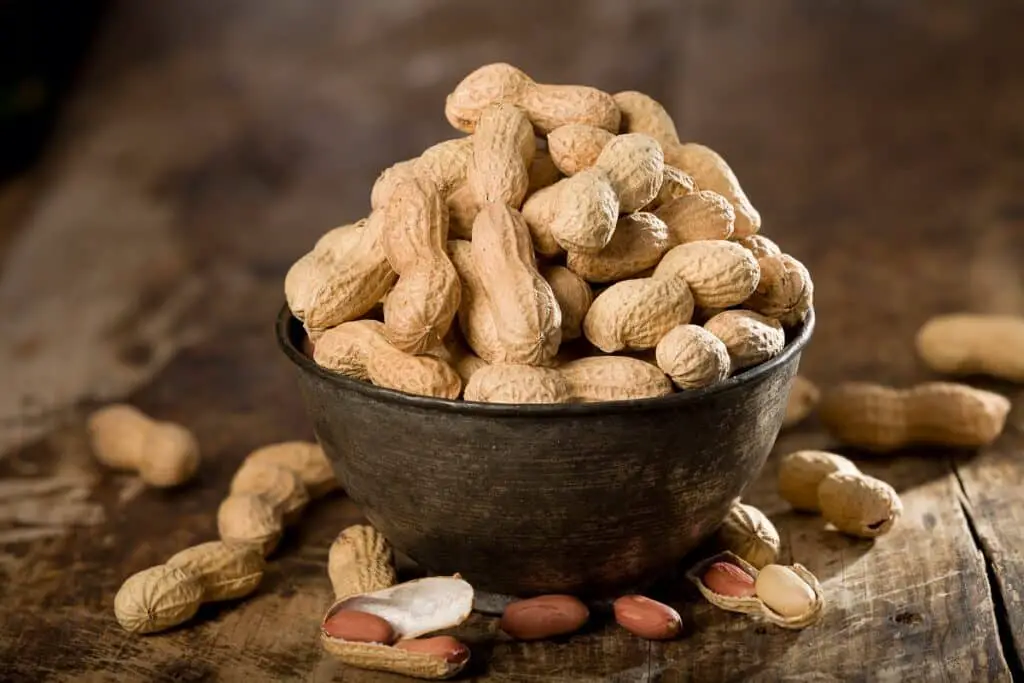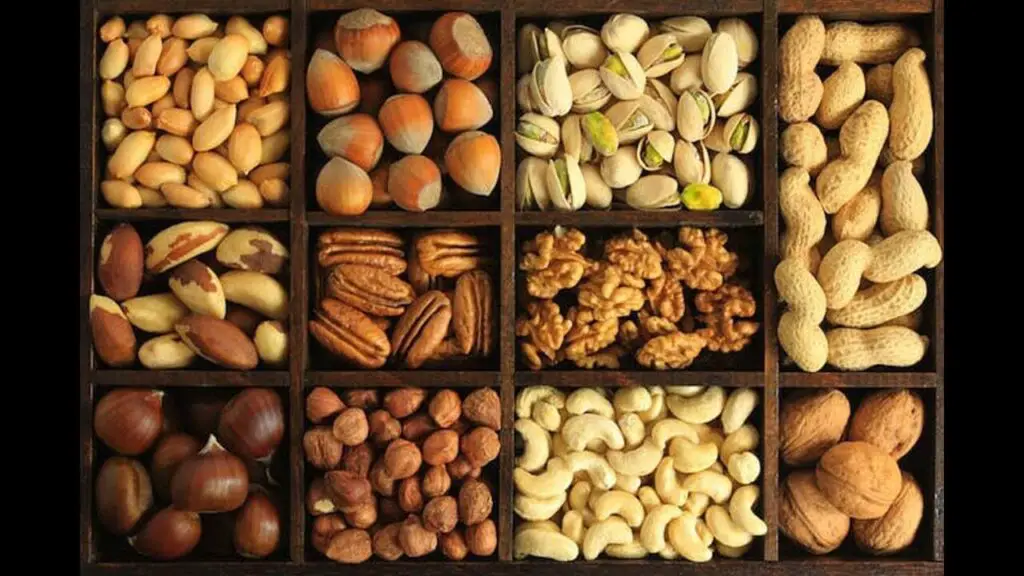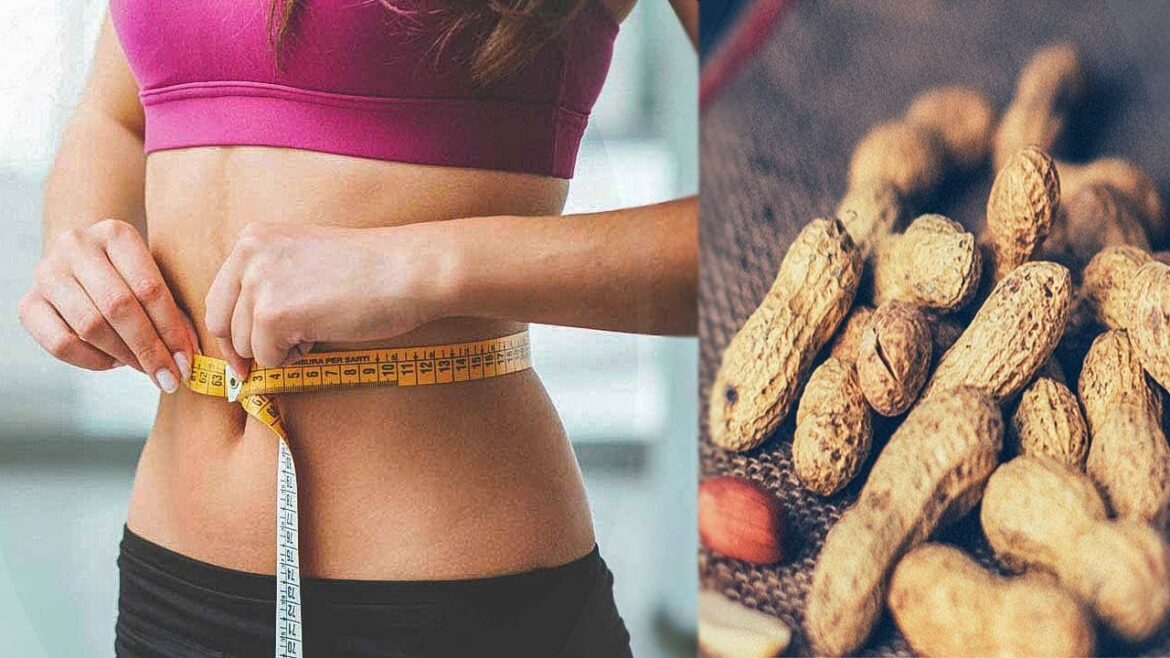Introduction
How To Eat Peanuts For Weight Loss: When it comes to achieving weight loss goals, dietary choices play a pivotal role in determining success. One often overlooked and underestimated snack that can be a valuable addition to a weight loss plan is peanuts. Despite their relatively high caloric content, when consumed mindfully and in moderation, peanuts can actually support weight loss efforts. In this guide, we will explore the various ways to incorporate peanuts into your diet for effective weight management, highlighting their nutritional benefits, portion control strategies, and creative recipes that will make your weight loss journey both enjoyable and satisfying. So, if you’re looking to shed those extra pounds while still indulging in delicious and nutritious snacks, read on to discover how to eat peanuts for weight loss.
There are numerous creative ways to incorporate peanuts into your diet to enhance your weight loss efforts. You can sprinkle crushed peanuts on top of salads, yogurt, or oatmeal for added texture and flavor. Peanut butter, in moderation, can be a tasty addition to smoothies, whole-grain toast, or even as a dip for fresh fruits and vegetables. Roasted peanuts can also be used as a crunchy topping for stir-fries or incorporated into homemade energy bars.
Remember that peanuts are just one component of a balanced diet. Combining them with a variety of fruits, vegetables, whole grains, and lean proteins will help ensure that you receive all the essential nutrients your body needs while working towards your weight loss goals. In this guide, we will explore these strategies and provide you with practical tips and recipes to make the most of peanuts as a part of your weight loss plan. By making informed choices and enjoying peanuts in moderation, you can harness their nutritional benefits and take significant steps toward achieving your desired weight.

Can I eat peanuts during weight loss?
Summing Up on Are Peanuts Good for Weight Loss? Summing up to the question, are peanuts good for weight loss, we can conclude that peanuts are good for weight loss because they are rich in essential nutrients like proteins, fibre, and healthy fats. Peanuts increase your metabolism rate by acting as a source of energy.
The Nutritional Value of Peanuts
Protein: Peanuts are rich in protein, making them an ideal snack choice for individuals looking to maintain or build muscle mass during their weight loss journey. Protein also helps keep you full, reducing the likelihood of overeating.
Healthy Fats: While peanuts contain fats, most of these fats are monounsaturated and polyunsaturated fats, which are considered heart-healthy fats. These fats can help regulate cholesterol levels and contribute to satiety.
Fiber: Peanuts are a good source of dietary fiber, which aids in digestion and helps control blood sugar levels. Fiber also keeps you feeling full for longer, reducing the temptation to snack on less healthy options.
Vitamins and Minerals: Peanuts contain essential nutrients like vitamin E, magnesium, phosphorus, and folate, which play crucial roles in overall health.
Calories in Peanuts
It’s important to note that peanuts are calorie-dense. A small serving of peanuts can provide a significant amount of calories. For those aiming to lose weight, calorie intake is a critical factor. To successfully lose weight, you must consume fewer calories than you expend. Therefore, portion control is key when incorporating peanuts into your diet.
How many peanuts can I eat to lose weight?
In fact, research has found that nuts might play an important role in weight regulation. A 2022 Nutrients study found that eating about 1 ounce of peanuts prior to two meals daily while on an energy-restricted diet resulted in weight loss that was comparable to a low-fat weight loss diet.
Calories in Peanuts: Peanuts are calorie-dense, and a small serving can pack a significant caloric punch. On average, one ounce (approximately 28 grams) of peanuts contains around 160-170 calories.
Balancing Calorie Intake: To lose weight, you need to create a calorie deficit by consuming fewer calories than your body burns. How many peanuts you can eat while trying to lose weight depends on your daily calorie allowance and overall dietary plan.
Balancing Nutritional Needs: Peanuts are not just about calories. They also offer protein, healthy fats, and fiber, which can help keep you full and satisfied. Incorporating peanuts as part of a balanced meal or snack can contribute to satiety and potentially reduce overall calorie consumption.
Variety is Key: While peanuts can be a healthy snack, remember that a diverse diet is essential for overall health. Don’t rely solely on peanuts for your nutritional needs; include a wide range of fruits, vegetables, lean proteins, and whole grains in your diet.
Can we eat soaked peanuts for weight loss?
They are a weight-loss-friendly meal because they are packed with nutrients, particularly protein and insoluble dietary fibre.
Soaked Peanuts: A Nutrient-Packed Snack
Enhanced Nutrient Absorption: Soaking can reduce the presence of anti-nutrients like phytic acid, which can inhibit the absorption of certain minerals. This may improve the availability of essential nutrients like magnesium and zinc.
Improved Digestibility: Some people find soaked peanuts easier to digest, which can be particularly helpful if you have digestive sensitivities.
Reduced Allergenic Potential: Soaking may help reduce the allergenic potential of peanuts, making them a more suitable option for individuals with peanut allergies or sensitivities.
Can Soaked Peanuts Aid in Weight Loss
Satiety: Peanuts, whether soaked or not, are rich in protein and healthy fats, which contribute to a feeling of fullness and satisfaction. This can help reduce the temptation to overeat or indulge in less healthy snacks.
Nutrient Density: Soaked peanuts provide essential nutrients, including protein, healthy fats, fiber, vitamins, and minerals. They can be a nutrient-dense snack choice compared to highly processed, calorie-laden snacks.
Mindful Eating: Soaking peanuts requires some preparation, which can promote mindful eating. Being more conscious of your snack choices can lead to better portion control and overall calorie management.
How many peanuts can I eat a day?
Ms. Tyagi tells, “You can safely consume a handful of peanuts in a day. You can add these to your snack time to beat hunger pangs between meals. If it’s peanut butter, a safe dose would be 1.5 tablespoons.”
Calories in Peanuts: Peanuts are calorie-dense. A small serving, typically around one ounce or 28 grams, contains approximately 160-170 calories. Therefore, understanding your daily caloric needs is essential when determining your peanut consumption.
Balancing Calories for Weight Maintenance: To maintain your current weight, you need to consume the same number of calories that your body burns. This is often referred to as your maintenance calorie level, which can vary widely depending on factors like age, gender, activity level, and metabolic rate.
Weight Loss or Weight Gain Goals: If you are trying to lose weight, you must create a calorie deficit by consuming fewer calories than you expend. Conversely, if you are aiming to gain weight, you’ll need to consume more calories than you burn. In both cases, peanuts can be part of your diet, but portion control is crucial.
Nutritional Value of Peanuts: Peanuts are a nutrient-dense food, providing protein, healthy fats, fiber, vitamins, and minerals. Incorporating them into your diet can offer valuable nutrients, but it’s important to consider the overall nutritional balance of your meals and snacks.
Individual Tolerance: Some individuals may have allergies or sensitivities to peanuts, which can limit their consumption. It’s essential to know your own dietary restrictions and consult with a healthcare professional if you have concerns.
Is roasted peanuts good for weight loss?
The bottom line. Peanuts are full of nutrition and make for a healthy snack. They’re full of fiber, protein, and healthy fats, which can aid weight management by keeping you full longer. For best results, choose raw, roasted, or boiled peanuts free of added salt and flavoring, and be mindful of your serving size.
Nutritional Value of Roasted Peanuts
Protein: Peanuts are a good source of plant-based protein, making them a satisfying and filling snack. Protein helps preserve lean muscle mass and can prevent excessive hunger between meals.
Healthy Fats: Roasted peanuts contain mostly monounsaturated and polyunsaturated fats, which are considered heart-healthy fats. These fats contribute to satiety and can help control cravings.
Fiber: Peanuts are rich in dietary fiber, which aids in digestion and helps keep you feeling full. Fiber also stabilizes blood sugar levels, reducing the likelihood of energy crashes that can lead to overeating.
Vitamins and Minerals: Roasted peanuts provide essential nutrients such as vitamin E, magnesium, phosphorus, and folate, which are important for overall health.
Is salted peanuts good for fat loss?
If you eat some peanuts before a meal, it could help you lose weight. If you eat salted peanuts twice a day before your meals, you can lose weight, lower your blood pressure, and improve your fasting glucose levels. This means that your blood sugar will stay stable between meals.
The Nutritional Profile of Salted Peanuts
Protein: Peanuts are a good source of plant-based protein, which can help with feelings of fullness and muscle preservation during weight loss.
Healthy Fats: Most of the fats in peanuts are monounsaturated and polyunsaturated fats, considered heart-healthy fats that support overall health.
Fiber: Peanuts are rich in dietary fiber, which aids in digestion and helps control blood sugar levels, contributing to feelings of fullness.
Salted Peanuts and Fat Loss: Considerations
Sodium Content: A typical serving of salted peanuts contains significantly more sodium than unsalted peanuts. Excessive sodium intake can lead to water retention, which may temporarily affect your weight. Additionally, high sodium intake can contribute to hypertension and cardiovascular issues.
Thirst and Overeating: Salted snacks can make you thirsty, potentially leading to increased fluid consumption. This increased fluid intake can sometimes be mistaken for hunger, prompting additional calorie consumption.
Mindful Eating: Consuming salted peanuts mindfully is essential for fat loss. Pay attention to portion sizes and avoid mindless snacking, which can lead to overconsumption.
Alternatives: If you enjoy the taste and texture of salted peanuts but are concerned about the sodium content, consider lightly salted varieties or, even better, unsalted peanuts that you can season with herbs and spices to control the salt content yourself.
Are almonds better than peanuts for weight loss?
In 2021, a scientific review was conducted of 62 studies of the effect of almonds on weight. Among the findings was that not only are almonds one of the best snacks for weight loss, but even in comparison to other nuts such as pistachios, walnuts, and peanuts, only almonds decreased body and fat mass.
Nutritional Comparison: Almonds vs. Peanuts
Calorie Content: Both almonds and peanuts are calorie-dense, with a typical one-ounce (28 grams) serving providing around 160-170 calories. When it comes to weight loss, calorie control is paramount.
Protein: Both nuts are excellent sources of protein, which can aid in preserving lean muscle mass during weight loss and help control hunger.
Healthy Fats: Almonds are slightly higher in monounsaturated fats, which are considered heart-healthy. Peanuts contain a mix of monounsaturated and polyunsaturated fats, also beneficial for cardiovascular health. Healthy fats contribute to feelings of fullness.
Fiber: Almonds and peanuts are rich in dietary fiber, promoting digestion and satiety. Fiber also helps regulate blood sugar levels, reducing the likelihood of energy crashes that can lead to overeating.
Vitamins and Minerals: Both nuts offer essential nutrients like vitamin E, magnesium, phosphorus, and folate, contributing to overall health.
Is peanut chikki good for weight loss?
Peanut Chikki may help in weight-loss
With Peanut Jaggery Chikki, you also consume a total of 5% of your daily calorie intake that keeps you energized for a long period of time. You can use it as a pre-workout snack to give you an energy boost right before you start exercising.
The Nutritional Components of Peanut Chikki
Peanuts: Peanut chikki’s primary ingredient is roasted peanuts. Peanuts are nutrient-rich, offering protein, healthy fats, fiber, vitamins, and minerals. They can contribute to feelings of fullness and satisfaction during weight loss.
Jaggery: Jaggery, the sweetening agent in peanut chikki, is derived from sugarcane or palm sap. While it provides a source of natural sweetness, it is calorie-dense and primarily composed of sugars, particularly sucrose.
Can Peanut Chikki Be Included in a Weight Loss Plan
Calorie Density: Peanut chikki is calorie-dense due to the sugar content. A small piece can contain a significant number of calories, making it easy to overconsume if not eaten mindfully.
Blood Sugar Levels: The high sugar content in jaggery can lead to rapid spikes in blood sugar levels, followed by crashes in energy. This can potentially lead to increased hunger and cravings for more sugary foods.
Satiety: Despite the protein and healthy fats from peanuts, the sugary nature of peanut chikki may not provide the same level of satiety as a balanced meal or snack with a lower sugar content.

Conclusion
Incorporating peanuts into your weight loss journey can be a smart and flavorful choice. By understanding their nutritional benefits, practicing portion control, and exploring creative ways to include them in your diet, you can harness the power of peanuts to support your weight loss goals. Remember that while peanuts can be a valuable addition to your regimen, they are most effective when part of a well-rounded, balanced diet. Be mindful of your overall calorie intake, stay active, and consult with a healthcare professional or nutritionist if you have specific dietary concerns. With the right approach, peanuts can not only contribute to weight loss but also make your culinary experience both satisfying and enjoyable. So, don’t hesitate to embrace the versatility and nutrition of peanuts on your path to a healthier you.
If you have specific dietary concerns, food allergies, or underlying health conditions, it’s advisable to consult with a healthcare professional or a registered dietitian. They can provide personalized guidance and help you create a tailored weight loss plan that aligns with your unique needs and goals. Remember that achieving and maintaining a healthy weight involves more than just the foods you eat. Regular physical activity, adequate sleep, stress management, and a positive mindset all play crucial roles in your overall well-being. Integrating these elements into your lifestyle can complement your efforts to achieve and sustain weight loss.
In summary, incorporating peanuts into your weight loss strategy is a wise choice, provided it’s done mindfully and in conjunction with a balanced diet and lifestyle. Continuously assess your progress, adapt your approach as needed, and prioritize your overall health and well-being. With dedication and a holistic approach, you can harness the benefits of peanuts and work towards your weight loss goals while fostering a healthier and more sustainable relationship with food.

